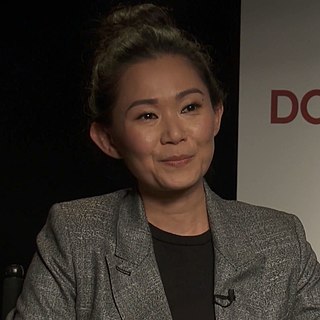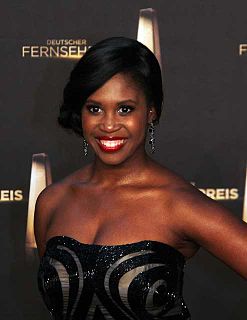A Quote by Russell Baker
Most English speakers do not have the writer's short fuse about seeing or hearing their language brutalized. This is the main reason, I suspect, that English is becoming the world's universal tongue: English-speaking natives don't care how badly others speak English as long as they speak it. French, once considered likely to become the world's lingua franca, has lost popularity because those who are born speaking it reject this liberal attitude and become depressed, insulted or insufferable when their language is ill used.
Quote Topics
About
Attitude
Badly
Because
Become
Becoming
Born
Care
Considered
Depressed
Don't Care
English
English-Speaking
French
Fuse
Hearing
How
Ill
Insufferable
Insulted
Language
Liberal
Likely
Long
Lost
Main
Most
Once
Others
Popularity
Reason
Reject
Seeing
Short
Speak
Speak English
Speakers
Speaking
Suspect
Those
Tongue
Universal
Used
World
Writer
Related Quotes
James Joyce's English was based on the rhythm of the Irish language. He wrote things that shocked English language speakers but he was thinking in Gaelic. I've sung songs that if they were in English, would have been banned too. The psyche of the Irish language is completely different to the English-speaking world.
English is the largest of human tongues, with several times the vocabulary of the second largest language -- this alone made it inevitable that English would eventually become, as it did, the lingua franca of this planet, for it is thereby the richest and most flexible -- despite its barbaric accretions . . . or, I should say, because of its barbaric accretions. English swallows up anything that comes its way, makes English out of it.
I have a funny relationship to language. When I came to California when I was three I spoke Urdu fluently and I didn't speak a word of English. Within a few months I lost all my Urdu and spoke only English and then I learned Urdu all over again when I was nine. Urdu is my first language but it's not as good as my English and it's sort of become my third language. English is my best language but was the second language I learned.
English has always been my musical language. When I started writing songs when I was 13 or 14, I started writing in English because it's the language in between. I speak Finnish, I speak French, so I'll write songs in English because that's the music I listen to. I learned so much poetry and the poetic way of expressing myself is in English.
On the one hand, there is no question that English - frequently bad English - has become the universal language of scholarship. It is clearly a tremendous handicap for people outside of the United States, Britain, and Australia and a few other countries because few of them are native speakers, but we demand that they present and publish in English.
The biggest issue for me has been the language because I speak so much German now. I've had to focus on my English and find more words to describe what I want to say and also soften my tone. It was quite stiff from 20 years of speaking German, so when I started speaking more English, oh my god, my tongue was like: 'Argh'!
I have a funny story to tell about English and how I came to fall in love with the language. I was desperate to fit in and spoke English all the time. Trouble was, in my household it was a no-no to speak English because somehow it is disrespectful to call parents and grandparents "you" - impersonal pronouns are offensive in Vietnamese.
We know from our recent history that English did not come to replace U.S. Indian languages merely because English sounded musical to Indians' ears. Instead, the replacement entailed English-speaking immigrants' killing most Indians by war, murder, and introduced diseases, and the surviving Indians' being pressured into adopting English, the new majority language.
When you speak a foreign language, you become someone else. If you aren't used to speaking a language, and you start speaking it again, for the first few sentences you'll find yourself in very strange shape, because you're still the person who was speaking the first language. But if you keep speaking that language, you will become the person who corresponds to it.
I spent ten years in London; I trained there. But because I started in English, it kind of feels the most natural to me, to act in English, which is a strange thing. My language is Spanish; I grew up in Argentina. I speak to my family in Spanish, but if you were to ask me what language I connect with, it'd be English in some weird way.

































